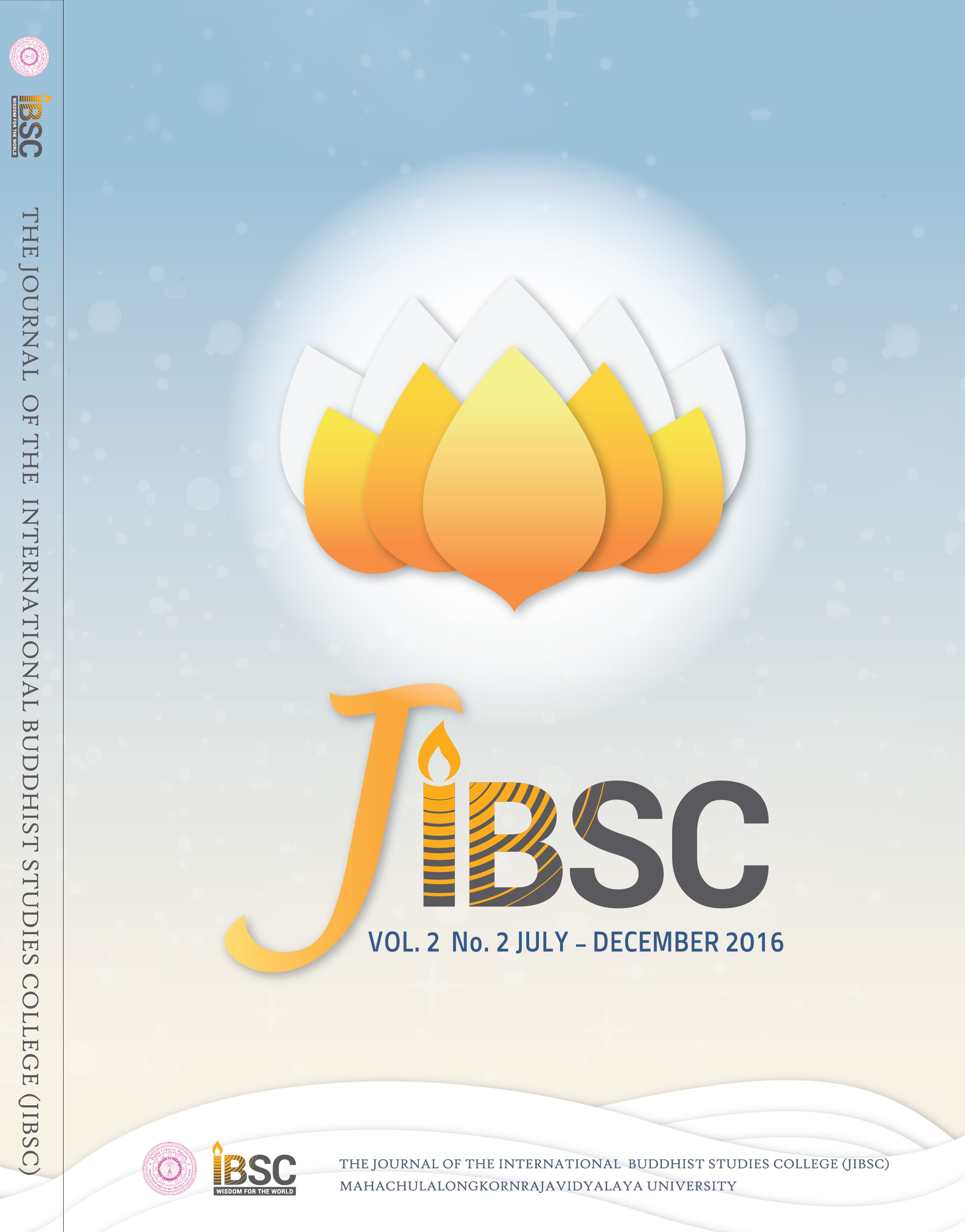SCIENTIFIC EXPERIMENTS TO SUPPORT KARMA AS FACT NOT FICTION
Main Article Content
Abstract
Most details of Karma are contained in Cula-Karmavibhanga Sutta, which is one of Theravada Buddhist philosophies. The principle of cause and effect is the underlining concept, and this Sutta gives specifi c examples of cause and effect of each type of Karma, often called “Law of Karma”. Karmas have either negative or positive impacts on life quality including health, wealth, love or interpersonal relationships, depending on the past actions were related to what aspects of life quality. The researcher conducted three studies, with the purpose to 1) validate three research results against the Sutta, 2) fi nd out consistent results between cause and effects described in the Sutta, 3) different participant groups and different times were used to ensure that the logic of Karmas hold true to everyone at any time. Using quasi experimental research method, the researcher provides examples of Karmas and their implications on life quality by taking the information from the experimental results. The paper demonstrates the comparisons of the experimental fi ndings with the precepts or teachings described in the Sutta. Finally, the researcher demonstrates how to use the precepts from this Sutta to heal ones who are already suffered by their past evil Karma. Good Karma as a reversal direction to evil Karmas can dilute the implications of past life evil Karmas on life quality. These three studies used qualifi ed and screened employees working at ICC International Company Limited 72 The Journal of The International Buddhist Studies College The Journal of The International Buddhist Studies College aging between 25 and 60. The study results show that Vividity of episodic and emotional memories of participants was 100% matched. And the match between past karmas and their present life qulity were 92.8%; this analysis confi rms that precepts described in Cula-Karmavibhanga Sutta hold true over 2500 years. The remaining 7.2% is highly abstract beyond the matching technique can detect
Article Details
The Journal of TCI is licensed under a Creative Commons Attribution-NonCommercial-NoDerivatives 4.0 International (CC BY-NC-ND 4.0) licence unless otherwise stated. Please read our Policies page for more information on Open Access, copyright and permissions.


